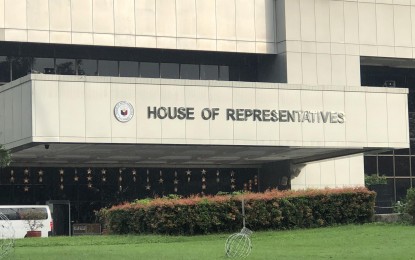
MANILA – The House Special Committee on Land Use on Thursday created a technical working group (TWG) to consolidate several measures pertaining to the proposed National Land Use Act (NaLUA), which is a legislative priority of President Ferdinand R. Marcos in his first State of the Nation Address (SONA).
The TWG, to be headed by Nueva Ecija Rep. Rosanna Vergara, shall be tasked to fine-tune House Bills 420, 870, 1621, 2299, 2383, 2878, 3007, 3611, 3956, 4081, 4163, 4291, 4884 & 5149.
Surigao del Norte Rep. Francisco Matugas II, chair of the special committee, said the President recognized the vital importance of national land use policy in the development of the country’s economy and progress as a nation.
Matugas cited a study by the German Institute for Development Evaluation which said “land use planning is an instrument that facilitates a fair, transparent allocation of land resources.”
National Economic Development Authority (NEDA) Undersecretary Carlos Bernardo Abad Santos gave a presentation on the executive version of the proposed NaLUA, which was approved by the NEDA Board National Land Use Committee and has similar components with the other proposed measures.
Santos emphasized the need to balance the competing uses of land and to harmonize various policies on land use such as those on agrarian reform, agriculture, ancestral domain, protected areas, housing, and urban development.
"By harmonizing these various policies, we will be able to have proper allocation of land and again reduce disaster risks through proper land use planning and land use development," he said.
He said the main rationale for the NaLUA is to address or to offset the negative effects of improper and uncoordinated land planning and management.
These negative effects include the urban sprawl or uncontrolled development that encroaches on prime agricultural lands and other fragile areas; indiscriminate conversion of prime agricultural lands to non-agricultural uses; poorly-planned settlements that lack basic amenities including transport and other infrastructure facilities; and proliferation of informal settlements in unsafe and hazard-prone areas.
He said the proposed coordinating structure for implementation is the creation of a National Land Use Committee, which shall be headed by NEDA.
There would also be committees to be cascaded at the regional, provincial, and city levels, he noted.
The bill also proposes the formulation of land use and physical framework plans for the national, regional, provincial, city, and municipal levels.
"These different physical frameworks and comprehensive land use plans would provide the major considerations in land use planning," Santos said, noting these include hazard prone areas, multiple uses of land, environmentally-critical areas, culturally-significant sites, and network of settlements.
The NaLUA would mandate the government agencies to implement programs that facilitate land use planning including forest land boundary delineation, a national geospatial information program, delineation and mapping of hazard-prone and vulnerable areas, monitoring of Comprehensive Land Use Plan formulation, training and value information, and information and education campaign.
He also highlighted special areas of concern that will be addressed with the NaLUA: forest lands, watershed reservation and national parks; coastal zone, marine resources, and waterways easement; settlements development; agricultural lands; mineral and energy resource lands; cultural and heritage areas; and transport and other infrastructure development. (PNA)
